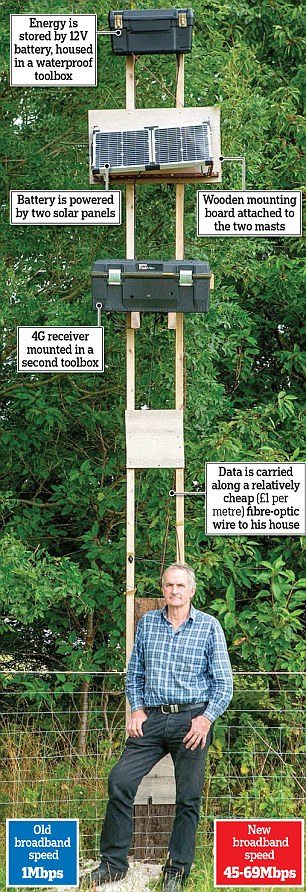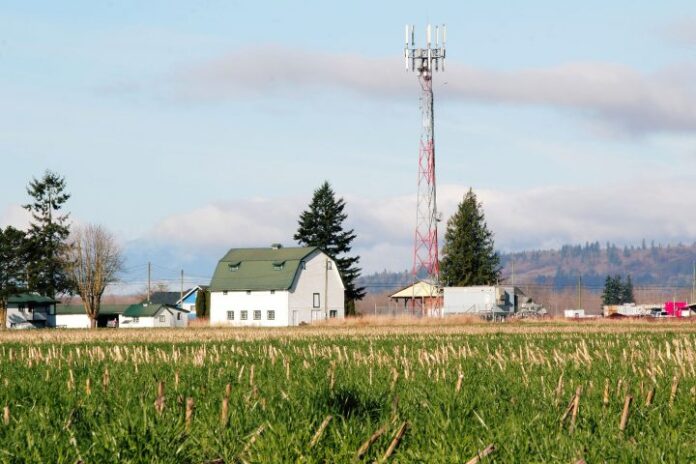Installed 4G dongle on wooden mast then connected it to his house with fiber cable
British farmer Richard Guy, who lives in rural Salisbury Plain, got sick of slow Internet access so the enterprising do-it-yourselfer took matters into his own hands and built a custom solution to run high-speed broadband to his home.
According to a report in The Daily Mail, Guy noticed that his LTE mobile service was markedly better than his home Internet service, which was provided by BT. Guy constructed a wooden mast outfitted with an LTE adapter inside a toolbox; from there, he connected the signal to his house with a fiber optic cable, according to the paper.

Guy said his home Internet connection speed, previously 1 megabit per second, now clocks in at 69 Mbps.
Speaking of rural connectivity, Guy told the paper, “It’s a big problem for people in rural areas. The government told us that the Olympics would bring fast broadband to everyone in Britain. Well, the Olympics were some time ago now. The world assumes that everyone is online, but the 5% who can’t connect are just dismissed. … So I decided to take matters into my own hands. We only had a 1 Mbps speed, which means everything is far too slow. Now I run at 69 Mbps, it runs everything perfectly.”
Guy has worked in IT since the 1980s, according to the media outlet, which reported he fitted an LTE dongle inside a waterproof toolbox and powered the dongle with a 12-volt solar battery.
Bringing high-speed Internet access to remote and rural areas is an issue in both the U.K. and U.S., where it’s viewed as a lever affecting economic mobility.
In the U.S., the Federal Communications Commission is pushing for an expansion of the Lifeline Assistance Program, which provides subsidized mobile phones to income-eligible residents, to include subsidized rural broadband.
In the U.K., authorities are looking to deliver broadband access to what it calls the final 5% of the population who live in areas so remote or rural they do not yet have access to broadband.
According to the BBC, the Department for Culture, Media and Sport estimates that it will cost roughly $800 million to guarantee broadband access to 100% of U.K. homes. In order to fund such an endeavor, the government is reportedly examining the possibility of imposing a levy on Internet-related industry.
The levy would be an update to the previous 50 pence (about 75 cents) phone levy that has previously been used by the U.K. to fund telecom infrastructure development. If such a tax were imposed, it could add as much as 1 pound ($1.57 based on current exchange rates) a month to all Internet bills across the country.

